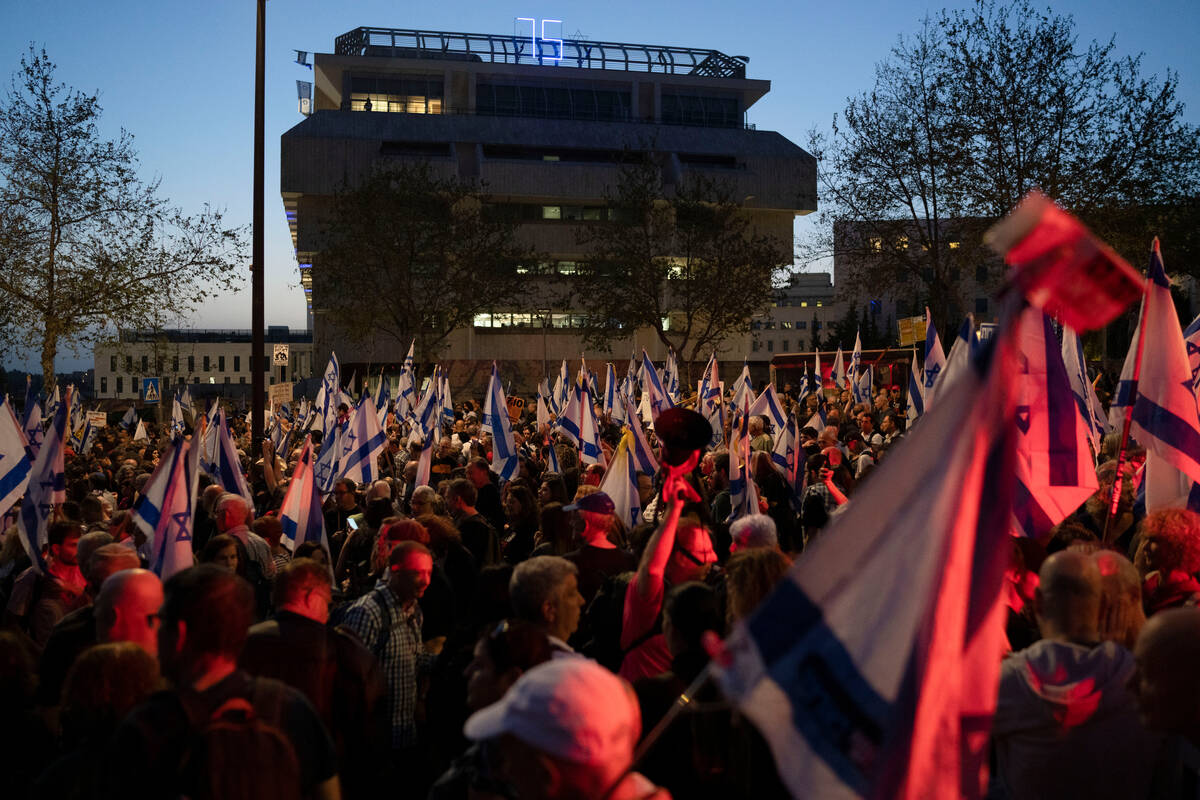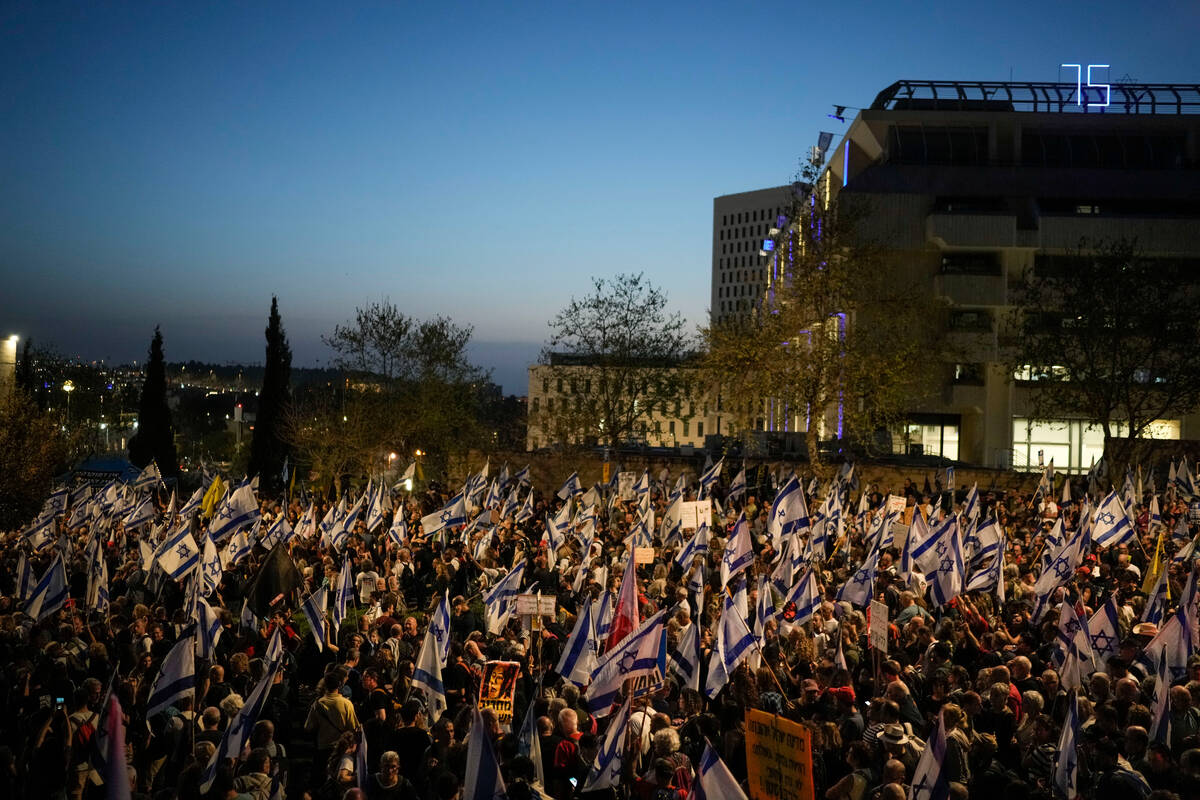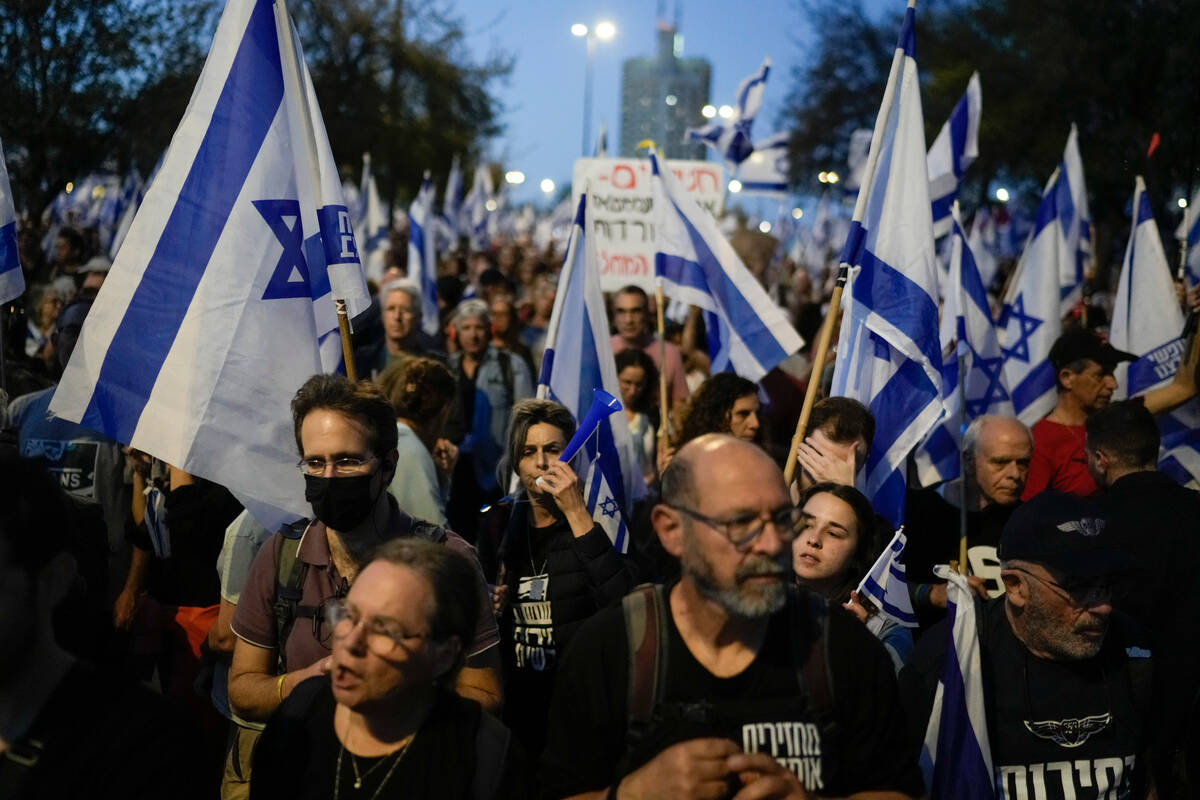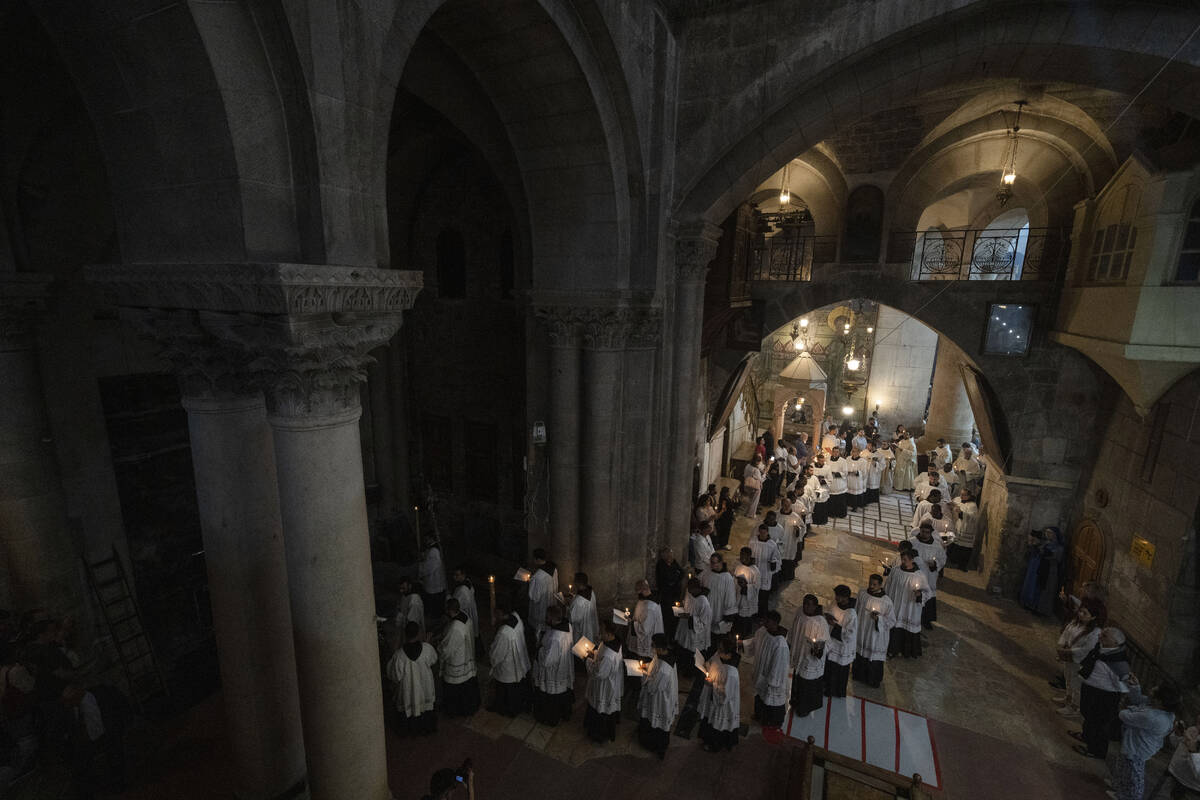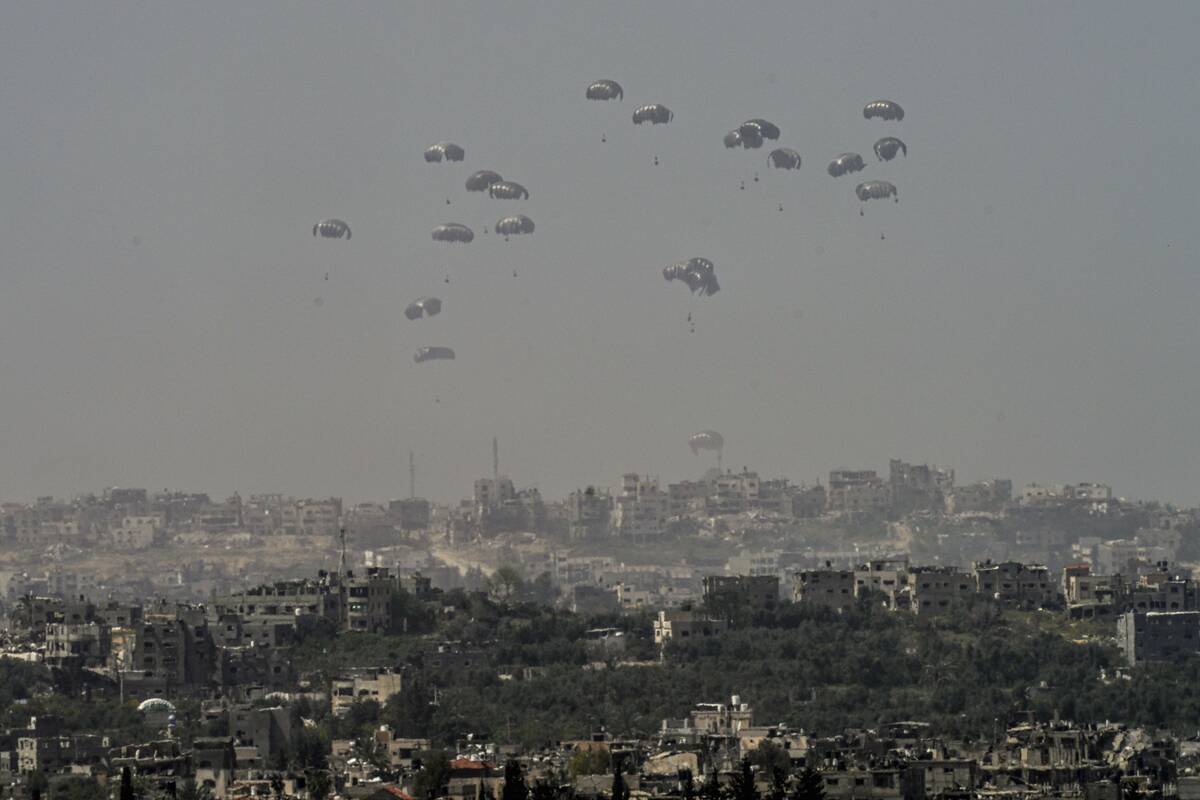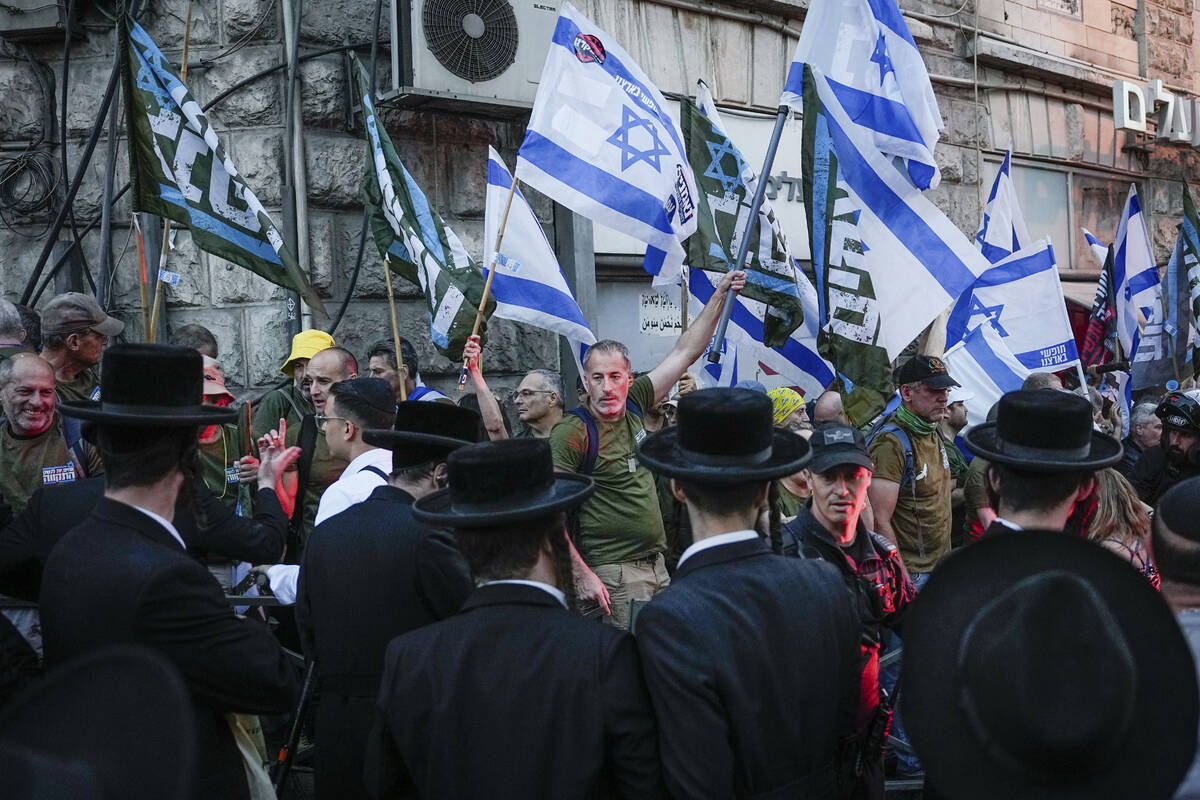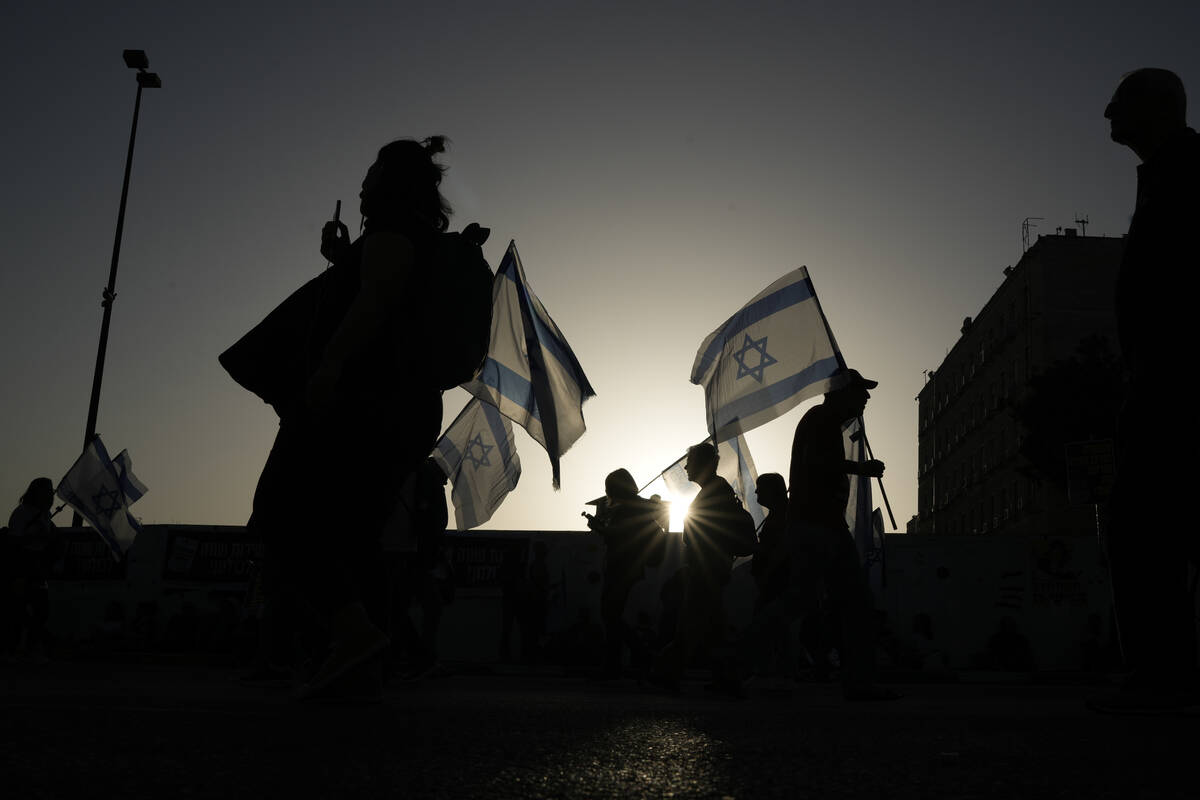Tens of thousands of protesters pressure Israeli prime minister
JERUSALEM — Tens of thousands of Israelis thronged central Jerusalem on Sunday in the largest anti-government protest since the country went to war in October. Protesters urged the government to reach a cease-fire deal to free dozens of hostages held in Gaza by Hamas terrorists and to hold early elections.
Israeli society was broadly united immediately after Oct. 7, when Hamas killed some 1,200 people during a cross-border terrorist attack and took 250 hostages. Nearly six months of conflict have renewed divisions over the leadership of Prime Minister Benjamin Netanyahu, though the country remains largely in favor of the war.
Netanyahu has vowed to destroy Hamas and bring all the hostages home, yet those goals have been elusive. While Hamas has suffered heavy losses, it remains intact.
Roughly half the hostages in Gaza were released during a weeklong cease-fire in November. But attempts by international mediators to bring home the remaining hostages have failed. Talks resumed Sunday with no signs that a breakthrough was imminent.
Hostages’ families believe time is running out, and they are getting more vocal about their displeasure with Netanyahu.
“We believe that no hostages will come back with this government because they’re busy putting sticks in the wheels of negotiations for the hostages,” said Boaz Atzili, whose cousin, Aviv Atlizi and his wife, Liat, were kidnapped on Oct. 7. Liat was released but Aviv was killed, and his body is in Gaza. “Netanyahu is only working in his private interests.”
Varied grievances
Protesters blame Netanyahu for the failures of Oct. 7 and say the deep political divisions over his attempted judicial overhaul last year weakened Israel ahead of the attack. Some accuse him of damaging relations with the United States, Israel’s most important ally.
Netanyahu is also facing a litany of corruption charges which are slowly making their way through the courts, and critics say his decisions appear to be focused on political survival. Opinion polls show Netanyahu and his coalition trailing far behind their rivals if elections were held today.
Unless his coalition falls apart sooner, Netanyahu won’t face elections until spring of 2026.
Many families of hostages had refrained from publicly denouncing Netanyahu to avoid antagonizing the leadership and making the hostages’ plight a political issue. But as their anger grows, some now want to change course — and they played a major role in Sunday’s anti-government protest.
The crowd on Sunday stretched for blocks around the Knesset, or parliament building, and organizers vowed to continue the demonstration for several days. They urged the government to hold new elections nearly two years ahead of schedule. Thousands also demonstrated Sunday in Tel Aviv.
Netanyahu, in a nationally televised speech before undergoing hernia surgery later Sunday, said he understood families’ pain. But he said calling new elections — in what he described as a moment before victory — would paralyze Israel for six to eight months and stall the hostage talks. For now, Netanyahu’s governing coalition appears to remain firmly intact.
Some hostage families agree that now is not the time for elections.
“I don’t think that changing the prime minister now is what will advance and help my son to come home,” Sheli Shem Tov, whose son Omer was kidnapped from a music festival, told Israel’s Channel 12. “To go to elections now will just push to the side the most burning issue, which is to return the hostages home.”
In his Sunday address, Netanyahu also repeated his vow for a military ground offensive in Rafah. Israel’s military says Hamas battalions remain there.
In another reminder of Israel’s divisions, a group of reservists and retired officers demonstrated in an ultra-Orthodox neighborhood.
Ultra-Orthodox men for generations have received exemptions from military service, which is compulsory for most Jewish men and women. Resentment over that has deepened during the war. Netanyahu’s government has been ordered to present a new plan for a more equitable draft law by Monday.
War developments
Also Sunday, an Israeli airstrike hit a tent camp in the courtyard of Al-Aqsa Martyrs Hospital in central Gaza, killing two Palestinians and wounding another 15.
The Israeli military said it struck a command center of the Islamic Jihad terrorist group.
Amid concerns about a wider conflict in the region, Lebanese state media reported that an Israeli drone struck a car in the southern Lebanese town of Konin.
A Lebanese security official told The Associated Press that Hezbollah terrorist fighter Ismail al-Zain was killed, speaking on condition of anonymity in line with regulations. Israel’s military called al-Zain a “significant commander.” Hezbollah confirmed the death.
Late Sunday, a Palestinian attacker stabbed three people in southern Israel, seriously wounding them, said the Hatzalah rescue service. Police said the attacker was shot, but gave no further details on his condition.



